Lekki Port and other China-backed infrastructure projects help West African nation enhance trade and connectivity, improve people’s lives
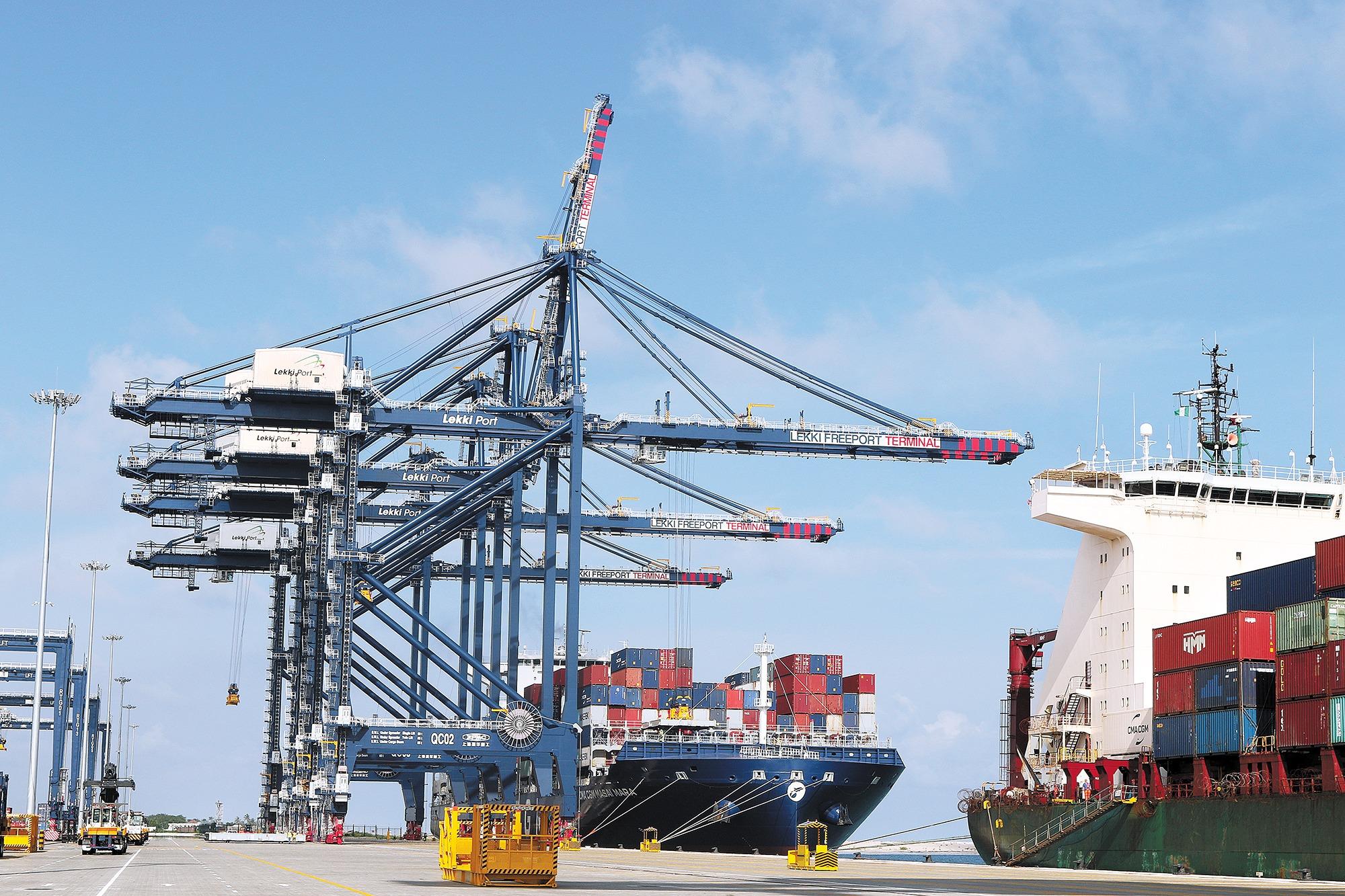 The Lekki Deep Sea Port is bringing real benefits to Nigerians. (OTIATO OPALI / CHINA DAILY)
The Lekki Deep Sea Port is bringing real benefits to Nigerians. (OTIATO OPALI / CHINA DAILY)
Editor’s note: This year marks the 10th anniversary of the launch of the Belt and Road Initiative, or BRI. A decade of practice has demonstrated that it is a broad and prosperous way for China and the world to share opportunities and seek common development. In a more than 10-part series, China Daily finds out how the road of peace, prosperity, openness, green development, innovation and civilization will contribute more to the shared future of mankind.
For Shi Gang, general manager of a cosmetics company in Lagos, Nigeria, shipping goods used to be a constant problem for his business in West Africa’s biggest country.
He relies on raw materials imported from China’s Jiangsu province to produce cosmetics and skincare products, but when the goods arrived at the Apapa Port, once the biggest seaport in Nigeria, he pinned his hopes on luck.
“The port is constantly congested and trucks would wait in long lines to get cargo unloaded from ships,” said Shi, from Colori Cosmetics FZE. “It may take up to one month for the goods to be transported out of the port to our factory, which is just 40 kilometers away.”
Since April, when the new Lekki Deep Sea Port became operational, things have become easier for Shi and others like him in Nigeria who rely on shipping for their business.
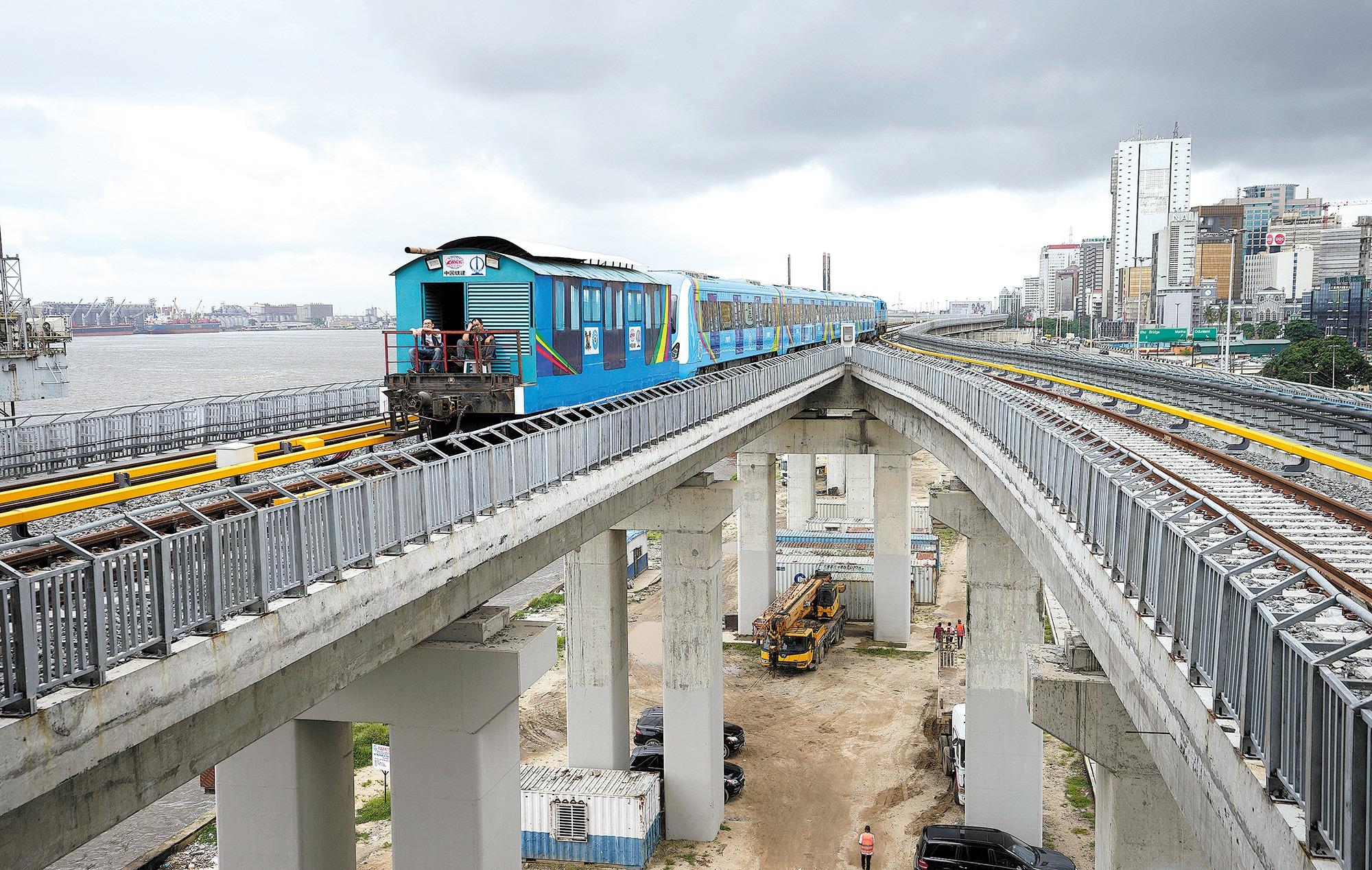 The Lagos Rail Mass Transit Blue Line is bringing real benefits to Nigerians. (PHOTO / AP)
The Lagos Rail Mass Transit Blue Line is bringing real benefits to Nigerians. (PHOTO / AP)
In May, 10 containers for Shi were cleared and unloaded within seven days of their arrival at the port. This also saved him a lot of money, as he did not have to pay additional charges if the cargo left the port within 14 days.
The Lekki Port, a Belt and Road project in West Africa built by China Harbour Engineering Company, will be able to handle 1.2 million containers every year once it reaches full capacity. It will increase Nigeria’s container-handling capacity by up to 80 percent, making it the largest seaport in the country by far.
Previously, Nigeria relied on two old ports, including the Apapa Port, for international trade. The new port is expected to ease bottlenecks in the country’s international trade and spur its economic development over the next decades, according to Du Ruogang, from China Harbour Engineering Company, who oversees the project.
The port will also help generate a number of jobs and contribute to poverty eradication, and it is expected that a profit of $361 billion will be generated over the next 45 years because of the port, according to the Nigerian government.
Since China proposed the Belt and Road Initiative (BRI) 10 years ago, a large number of major infrastructure projects, including roads, railways, airports, and seaports, have been completed across Africa and many other countries.
In Nigeria, major projects completed in recent years have facilitated social and economic transformation.
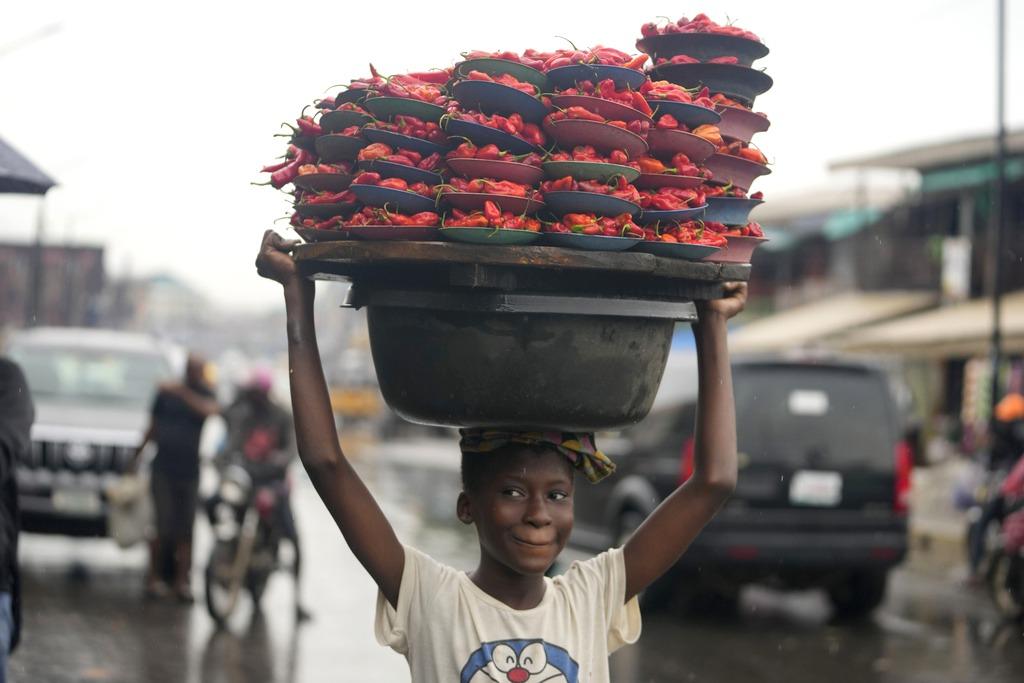 A young girl sells peppers on the street in Lagos, Nigeria on Sept 16, 2023. (PHOTO / AP)
A young girl sells peppers on the street in Lagos, Nigeria on Sept 16, 2023. (PHOTO / AP)
In January, the first electrified railroad and cross-sea light rail in West Africa started to operate in Lagos. The project, built by China Civil Engineering Construction Co, was described by Nigeria’s former president Muhammadu Buhari as “historic”, as it will ease traffic congestion and improve lives.
Another landmark railway project in Nigeria, the Lagos-Ibadan Standard Gauge Railway (SGR), which links Lagos to Ibadan, a major industrial city in Southwest Nigeria, was put into operation in June 2021. The railway, also built by China Civil Engineering Construction, is the first modern double-line SGR in West Africa, and a part of the 1,343-km-long Lagos-Kano SGR, which is under construction. Once complete, the railway will become a major artery in Nigeria, replacing an old railway line built by British colonists a century ago.
In the northern city of Kano, another railway line linking neighboring Niger is also under construction. The 387-km Kano-Maradi railway, with China Communications Construction Company as one of the contractors, will facilitate economic and trade links between the two countries.
In Lekki Port, the number of containers being handled at the port has been steadily increasing over the past few months, although it may take years for the port to reach its full capacity. Adesuwa Ladoja, executive director of Lekki Port LFTZ Enterprise, said the development of the port has gained continuous support from successive governments because it has significant economic meaning for Lagos.
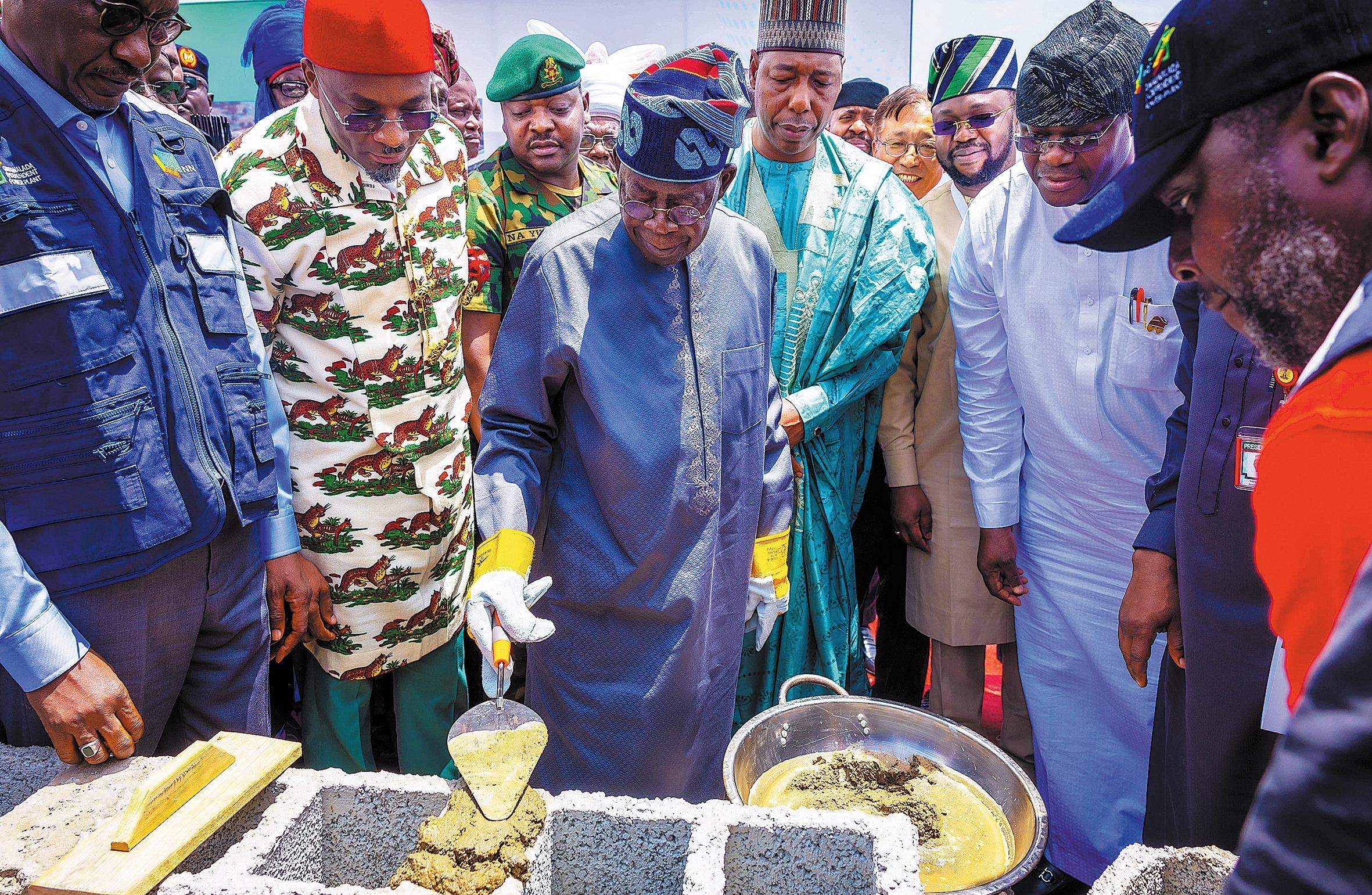 Nigerian President Bola Tinubu (center) attends the groundbreaking ceremony for the construction of a gas-fired power plant project undertaken by a Chinese company in Abuja, Nigeria, on Aug 4, 2023. (PHOTO / XINHUA)
Nigerian President Bola Tinubu (center) attends the groundbreaking ceremony for the construction of a gas-fired power plant project undertaken by a Chinese company in Abuja, Nigeria, on Aug 4, 2023. (PHOTO / XINHUA)
The port is at the center of a master plan. An airport, a new railway, and new roads will be built near the port, and a lot of companies that need the services of the port will grow, making the area around the port a vibrant economic hub, Ladoja said, adding that about 170,000 jobs will be created.
“Lekki Port is a beneficiary of the Belt and Road Initiative, which I believe is very beneficial to Africa,” she said. “The port is a game-changer for us. For the economy, for the people, for the whole of West Africa region, this port changes everything. It helps us to regain the preeminent leadership role in Africa.”
Du, from China Harbour Engineering Company, said major infrastructure projects such as the Lekki Port in Africa could not have been completed without the backing of China and the BRI.
“We have got great support from various parties in the building and operation of the port, including a $600-million loan from the China Development Bank,” he said. “Previously we did not seek long-term investment in Africa due to various reasons, but with the Belt and Road Initiative, we have more confidence in business here for long-term development.”
Although big Chinese enterprises have been encouraged to expand to the overseas markets over the past decades, the BRI emphasizes more on cooperation and mutual benefit, and has won both policy support from China and reorganization from other countries, Du said.
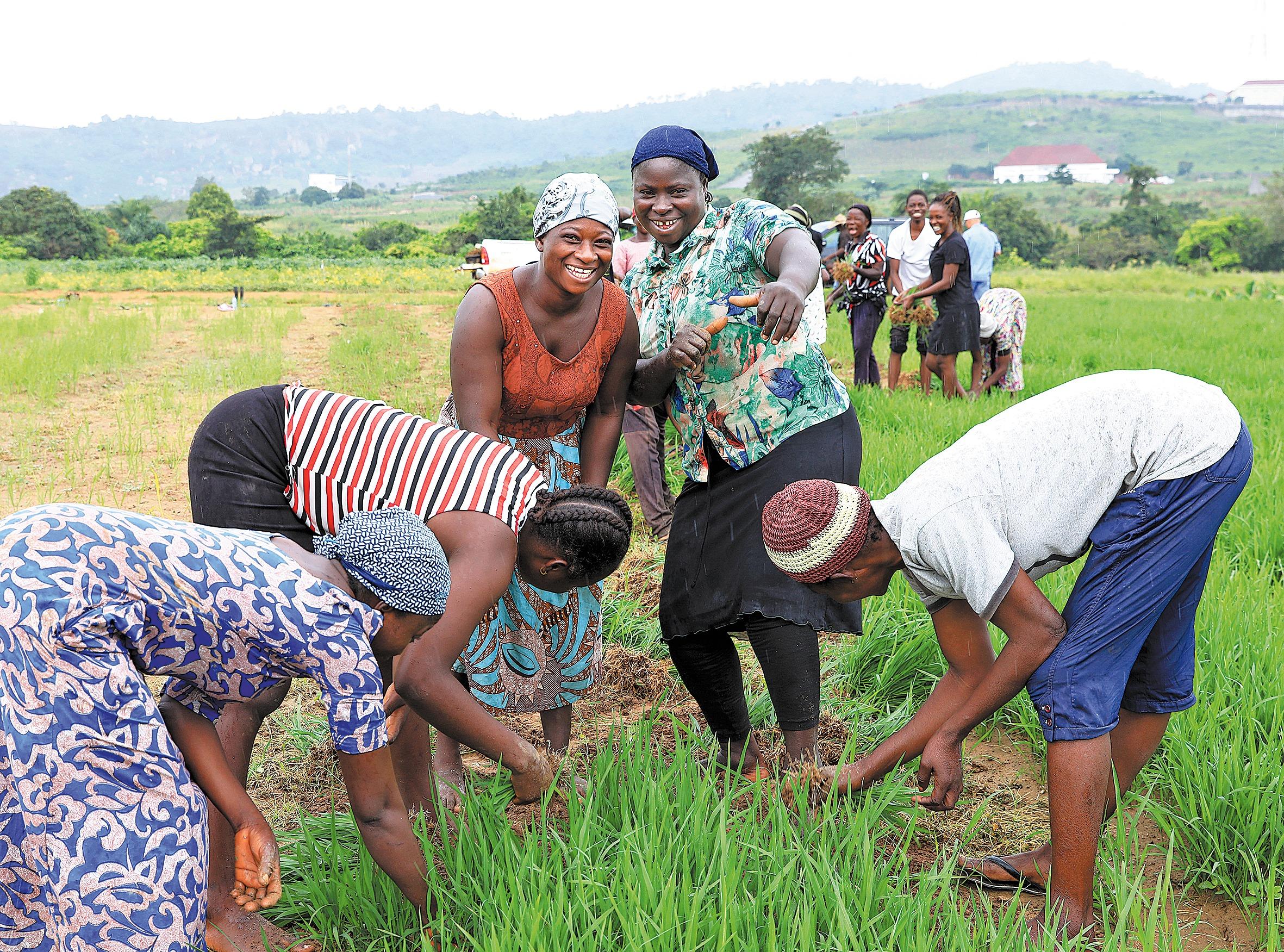 Local employees display rice seedlings they have picked at the Nigerian Agricultural Technology Demonstration Center in Abuja, Nigeria, on Sept 19, 2023. (PHOTO / XINHUA)
Local employees display rice seedlings they have picked at the Nigerian Agricultural Technology Demonstration Center in Abuja, Nigeria, on Sept 19, 2023. (PHOTO / XINHUA)
Against the backdrop of the more turbulent international situation in recent years, the BRI, which promotes the building of a common community for mankind with a shared future, has more special significance in that it promotes global integration and economic stabilization, which serve the interests of the international community, especially the developing countries, he said.
Charles Onunaiju, director of the Center for China Studies, in Abuja, Nigeria, said the BRI has greatly increased connectivity in Nigeria and the whole of Africa over the past 10 years, and promoted integration between different countries on the continent.
“Today we can see connectivity across Africa, whether it is the first electric railway from Ethiopia to Djibouti, the railway from the port of Mombasa to Nairobi or from Lagos to Ibadan and Abuja to Kaduna in Nigeria and all over Africa,” he said.
“Previously, to travel to South Africa from Nigeria, one had to travel to Europe first. To travel to West Africa from East Africa, one had to go to Paris or London before connecting to a country like Nigeria,” he said, adding that today, air, road, and port connectivity in Africa are becoming a reality, thanks to the BRI.
In addition to increasing connectivity through major infrastructure projects, the BRI has also brought numerous opportunities for the local people, Onunaiju said.
Although some countries such as the United States have also proposed cooperation initiatives to Africa, what is different about the BRI is that it is consultative and practical, he said.
“There is no time in Africa’s history that the continent has had a partner that is both willing and able as now with China. In the past, we have had partners who were willing and not able, or able but not willing,” he said.
“In my opinion, the BRI will remain relevant to humanity because it offers us a practical road map to realizing our dreams by offering us a platform to realize a shared future. So as far as humanity moves along the line of collective aspiration, concern for collective security and enduring peace, and sustainable development, the BRI will remain relevant in the drive to accomplish these goals.”


